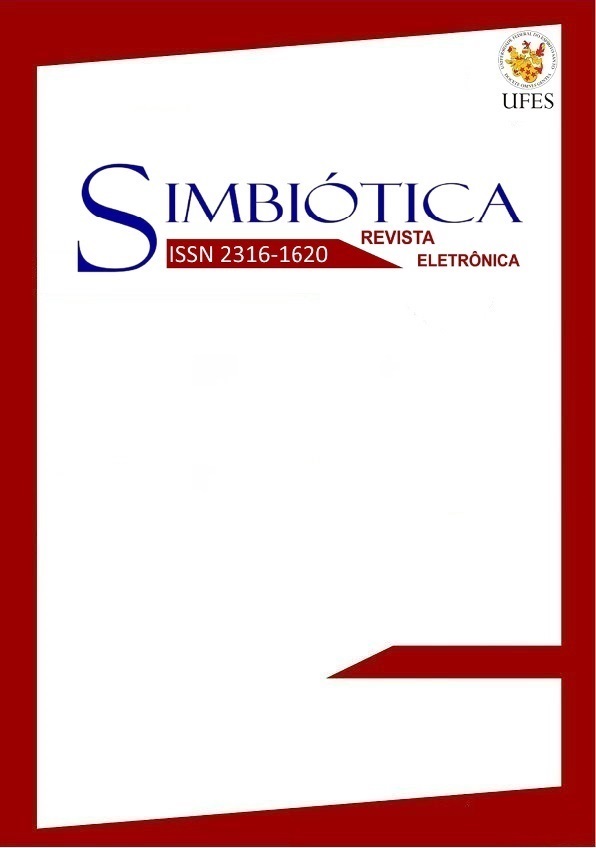A sketch on the emergence of the Black Movement in Maranhão: ruptures and continuities in ethnic-racial struggles
DOI:
https://doi.org/10.47456/simbitica.v6i2.28450Abstract
O presente trabalho tem por objetivo averiguar os passos da emergência de uma entidade específica do Movimento Negro no Nordeste brasileiro, o Centro de Cultura Negra (CCN), atentando para o cenário de seu surgimento no Maranhão, bem como sua interface com lutas e demandas de entidades do Movimento Negro no Brasil. Ademais, direciona a atenção para os experimentos organizativos e as intervenções políticas na garantia de direitos territoriais às chamadas “comunidades remanescentes de quilombos” em meio à redemocratização nacional, como também a posterior mobilização dessas comunidades em segmentos organizados próprios.
Palavras-chave: Movimentos Sociais; Comunidades Quilombolas; Direitos Constitucionais.
Abstract
This work aims at investigating the steps of the emergence of a specific entity of the Black Movement in the Brazilian Northeast, the Center of Black Culture (CCN, the acronym in Portuguese), considering the scenario of its emergence in Maranhão, as well as its interface with struggles and demands of entities of the Black Movement in Brazil. In addition, it draws attention to organizational experiments and political interventions in guaranteeing territorial rights to the so-called "remaining communities of quilombos" during national redemocratization, as well as the subsequent mobilization of these communities in their own organized segments.
Keywords: Social Movements; Quilombola Communities; Constitutional Rights.
Resumem
El presente trabajo tiene por objetivo indagar acerca de la emergencia de una entidad específica del movimiento negro en el Nordeste brasileño, el Centro de Cultura Negra (CCN), haciendo foco en el escenario de su surgimiento en Maranhão, así como su interfaz con luchas y demandas de entidades del Movimiento Negro en Brasil. Además, orientar la atención hacia los experimentos organizativos e intervenciones políticas por la garantía de derechos territoriales a las llamadas "comunidades remanentes de quilombos" en medio de la redemocratización nacional, así como la posterior movilización de estas comunidades en segmentos organizados propios.
Palabras clave: Movimientos Sociales; Comunidades Quilombolas; Derechos Constitucionales.
Downloads
Downloads
Published
How to Cite
Issue
Section
License
Copyright (c) 2020 Igor Thiago Silva de Sousa

This work is licensed under a Creative Commons Attribution-NonCommercial-NoDerivatives 4.0 International License.
Autores que publicam nesta revista concordam com os seguintes termos:
a. Autores mantém os direitos autorais e concedem à revista o direito de primeira publicação, com o trabalho simultaneamente licenciado sob a Creative Commons - Atribuição-NãoComercial 4.0 Internacional.
b. Compartilhar - copiar e distribuir o material em qualquer meio ou formato.
Adaptar - remix, transformar e construir sobre o material para qualquer finalidade, inclusive comercial.
c. Autores têm autorização para assumir contratos adicionais separadamente, para distribuição não-exclusiva da versão do trabalho publicada nesta revista (ex.: publicar em repositório institucional ou como capítulo de livro), com reconhecimento de autoria e publicação inicial nesta revista.
d. Autores têm permissão e são estimulados a publicar e distribuir seu trabalho online (ex.: em repositórios institucionais ou na sua página pessoal) a qualquer ponto antes ou durante o processo editorial, já que isso pode gerar alterações produtivas, bem como aumentar o impacto e a citação do trabalho publicado (Veja O Efeito do Acesso Livre).
Authors who publish in this journal agree to the following terms:
a. Authors retain the copyright and grant the magazine the right of first publication, with work simultaneously licensed under the CCreative Commons - Atribuição-NãoComercial 4.0 Internacional.
b. Share - copy and distribute the material in any medium or format.
Adapt - remix, transform and build on the material for any purpose, including commercial.
c. Authors are authorized to take additional contracts separately, for non-exclusive distribution of the version of the work published in this journal (eg, publish in institutional repository or as a book chapter), with acknowledgment of authorship and initial publication in this journal.
d. Authors are allowed and encouraged to publish and distribute their work online (eg.: in institutional repositories or on their personal page) at any point before or during the editorial process, as this can generate productive changes as well as increase the impact and the citation of the published work (See The Effect of Free Access).










